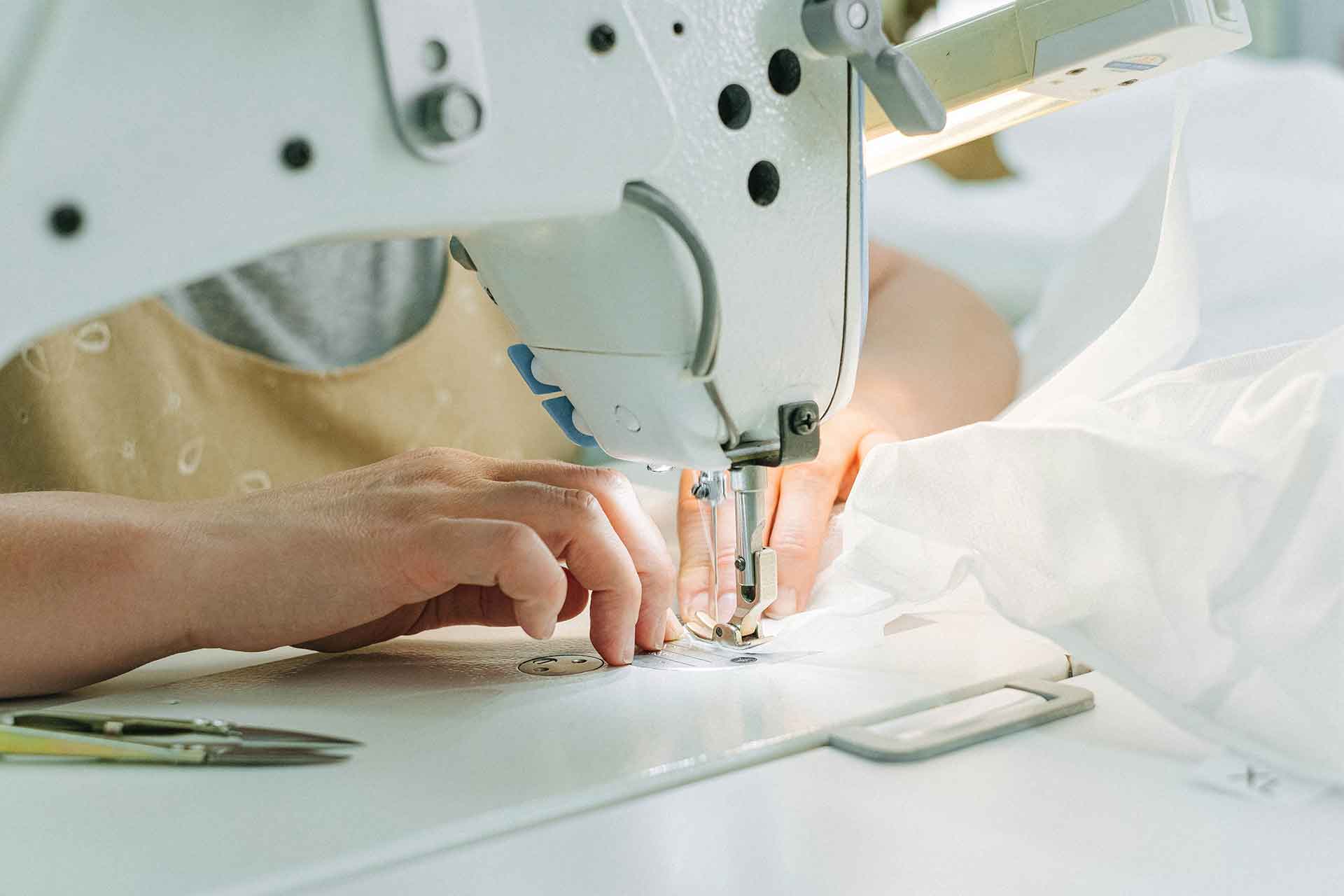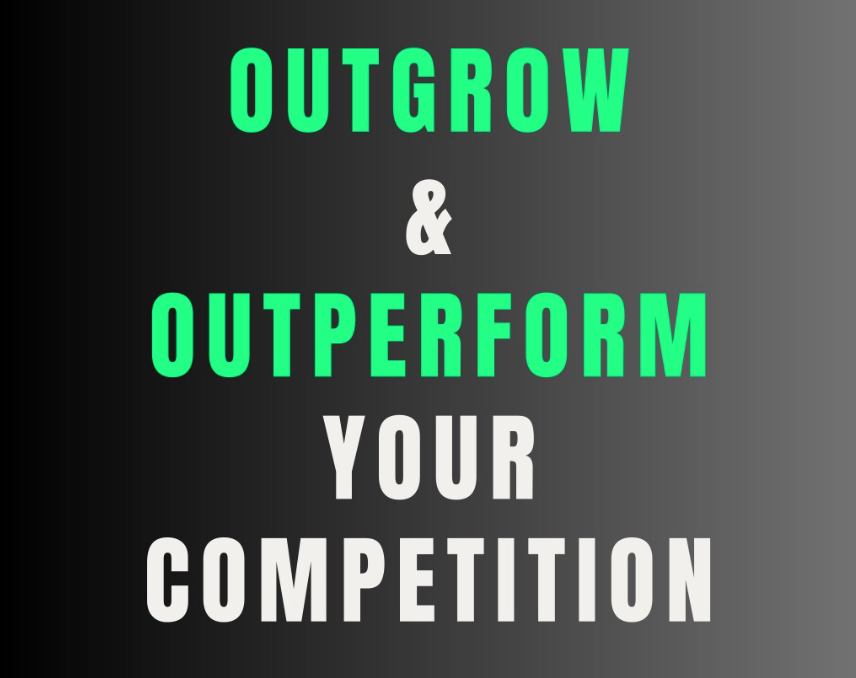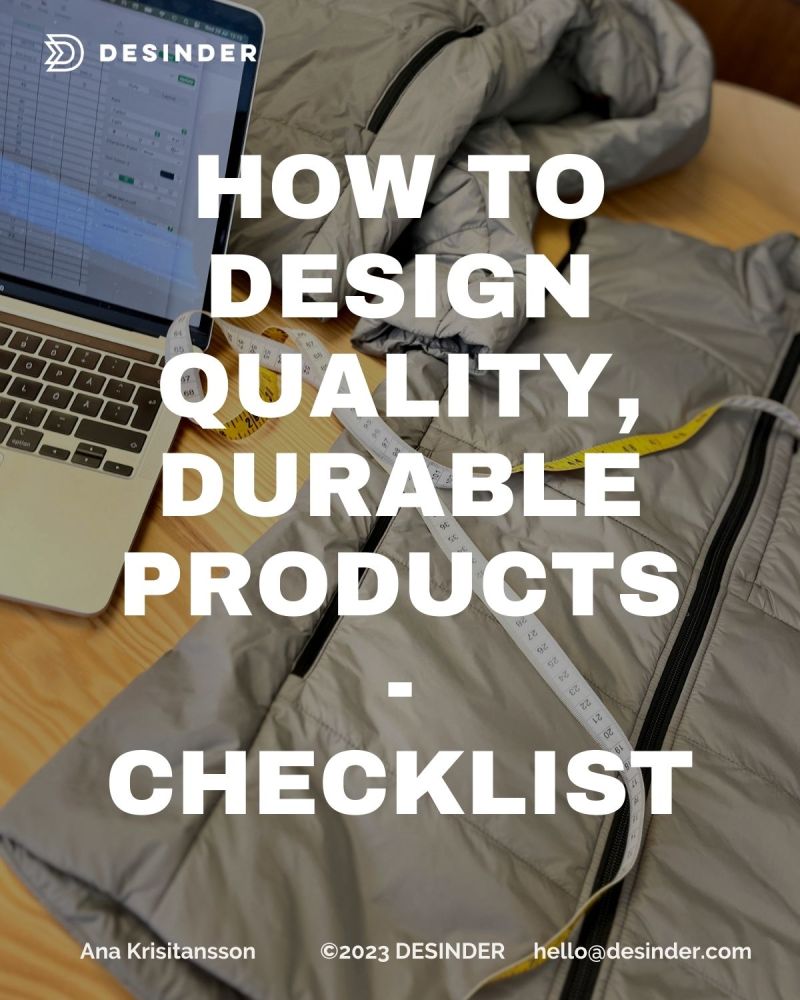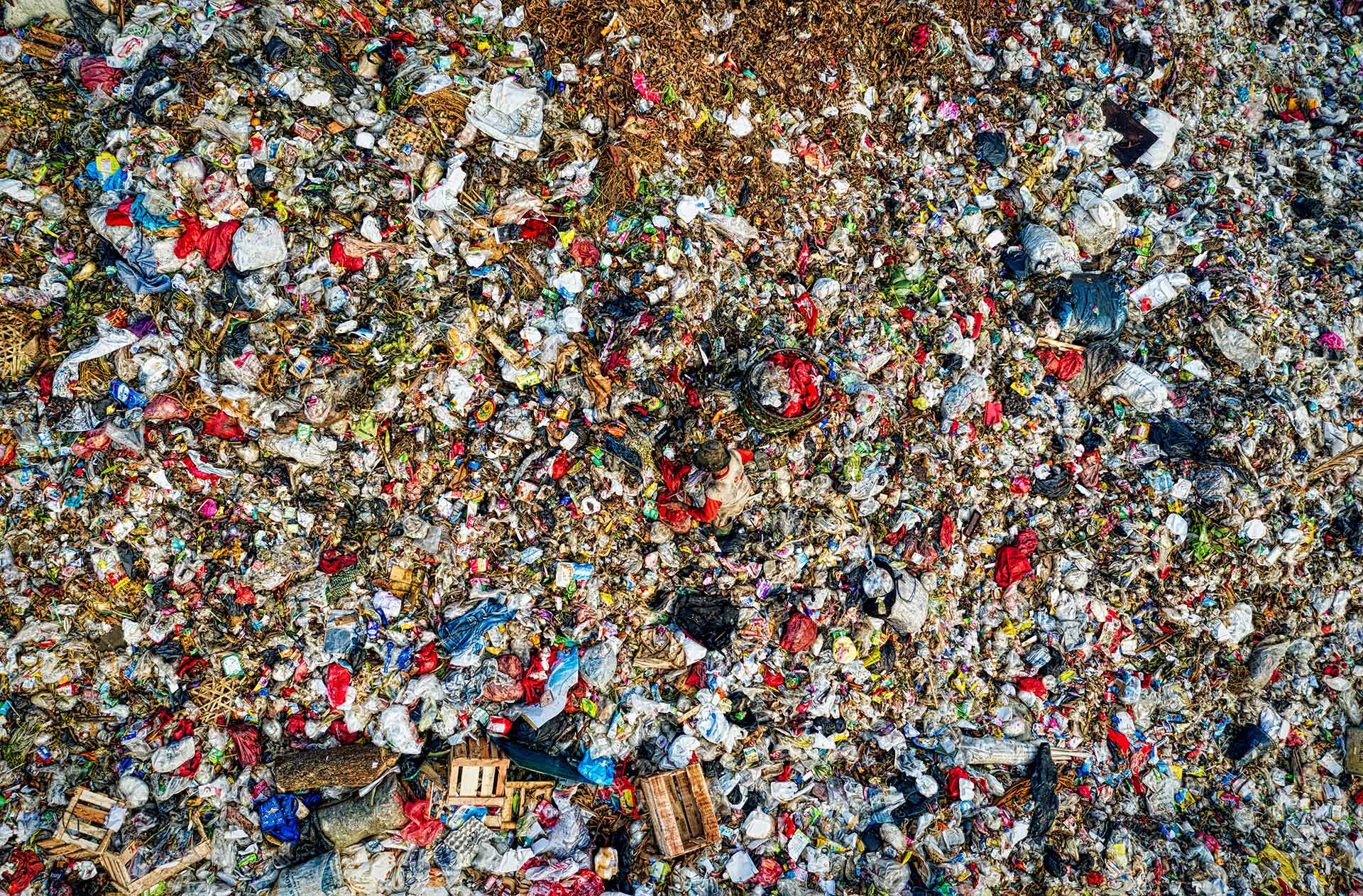One of the most common questions we receive is: how to choose the right apparel manufacturer?
It’s hard to find trusted factories, and when you finally find one there are so many parameters that need to fall in place. MOQs, timelines, the right quality, great communication, etc. At Desinder, all our projects are customized. The suppliers and manufacturers we choose to cooperate with depend on the client, product, quality, quantity, etc. The factory cooperation becomes an integrated part of the customized project.
If you want to look for a manufacturer on your own, we recommend you first get this sourcing list, which contains over 700 manufacturers and suppliers worldwide. In order to choose the right manufacturer, we have put together a list of things to look for when searching for a great manufacturing partner. All these questions and things on the list will help you find a good match for your brand and products. As you know, manufacturers specialize and not all factories can produce your type of product, at your desired quality, and at your desired price.
Checkpoints for choosing the right apparel manufacturer:
Sustainability Certifications
What is the manufacturer doing and focusing on in terms of sustainability? And what are their proof – certifications?
Factory overall capacity for new customers
What is their capacity and can they take on new clients? You can always negotiate, if you are a startup you will most probably not order a huge amount in your first production, so keep the discussion open. If you are established, you are in an easier position.
What production process do they offer?
Manufacturers can offer different production processes to brands. What they can offer depends on their operations. Do they offer CMT – cut make and trim, FPP – full package production, or other? Make sure you understand clearly what it is that they offer and the differences in their offer so you can make a calculated decision.
Minimum orders quantity by order, fabric, color, and style
This is a huge dealbreaker. What is their MOQ on the entire order, on fabrics used, on color, and style? Some factories have huge MOQs and some have lower ones. It is up to you to decide if you want to or have the finances to place a big order.
Location – country and distance to the port
Where do they have their manufacturing facilities? Some manufacturers have several manufacturing plants in different countries. Some countries might be better for you to use because of no tax etc.
How long has the manufacturing company been in business?
This can matter if you want to have a quality track record and because it can show that they have smooth, efficient operations.
Past and present customers with similar products
Getting references from other brands is very important. You will be able to see what type of quality they produce and what brands they work with. In general, bigger brands have more rigorous quality controls of their products and this means that the factory can produce great garments according to higher quality standards. You can also ask for a sample product from the manufacturer so you can check for yourself.
What’s produced is their in-house facilities and where is their outsourcing done?
Printing, embroidery, washing, dyeing, etc is often done at another facility or with another company. You need to make sure who they are and that they are working with compliant subcontractors.
Where are they sourcing their materials?
If the factory helps you with sourcing, it’s important to be able to track all the suppliers and know where your materials come from. Ask them if they can provide this information if needed.
Average turn-time for specific styles after all approvals
How fast can they produce your products after you have OK:d all proto and sample changes? This needs to match your product drop schedule. If you are running a DTC brand and have drops every month, then the schedule needs to be made according to your deadlines. If you are running on a more traditional season-based schedule, discuss this with them to make sure they are not fully booked with their big customers. Maybe they can produce your goods in-between the busiest times?
Inventory of their equipment and maintenance schedules
You want to make sure that they do this on a regular basis to ensure a high quality of products.
In house auditors, auditing procedures, and records of audits
If they have systems in place for audits it’s great. You might also want to have external audits as well. But this is more common when you have a bigger brand, not when you start out with a small collection.
Technical staff available for assistance
Most f the time the sewers are just skilled in sewing. They are not skilled in putting a garment together or creating technical solutions. Does the factory have technical staff in the factory? If not, can they be there when you visit the factory? How often does the technician visit the factory, and how close do they work with the people on the floor?
Do they offer Design and Pattern Making?
Do they provide these services? If yes, it’s a huge help and a time saver. It will of course depend on your ability to communicate.
Do they write and speak English or your preferred language?
Clear communication is key in every successful partnership. Do they understand what you want to achieve? Do they fully comprehend your questions and comments? If you can’t clearly communicate you’ll have a hard time producing great products.
What’s their response time?
Are they quick to respond to your emails and phone calls or does it take several follow-ups for them to get back to you? Again, communication is key and the deadlines can be very tight when it comes to product development. If they are not agile and “on the ball” – find another factory.
What is their sample quality?
Most factories have a sample room where they produce prototypes or samples for every customer. When the sampling process is finished and you go into production, the manufacturing is done in their production line. You want to make sure that the production quality is as high as their sample quality, or vice versa.
Background check – money issues
When receiving brand references you can ask those brands if they have had any money issues with the specific factory. If yes, why and how did the factory solve it. Basically, you want to make sure that you can trust the factory.
And some final words:
Do take your time and do your due diligence. Check credentials and talk to other brands that produce their goods at that factory.
And most importantly – schedule a factory visit. An in-person visit helps you see what the factory is about, what type of products they have on the line, the quality of goods, cleanliness, happiness, and work conditions of the workers, and the overall leadership of the factory owners. Every detail helps you make a decision to work or not work with that specific factory.
Finding the perfect manufacturer for your products can be tricky. You might find one right away with some luck or you’ll have to search for a while. All your efforts with your due diligence will pay off because finding and working with the right manufacturer is a partnership. A long-term relationship that nourishes both businesses. So make sure you enter that relationship with a 50/50 mentality. It should be a win/win situation.
When you find the right partner, they will help you build and scale your business to become the success you want.




